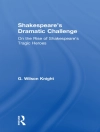In ‘Massacre at Paris, ‘ Christopher Marlowe crafts a compelling historical drama set against the tumultuous backdrop of the French Wars of Religion. This play, characterized by its rich, lyrical language and dynamic characterizations, explores themes of power, betrayal, and the devastating impact of religious fanaticism. Marlowe’s use of blank verse and command of dramatic pacing evoke a sense of urgency and tension, as the narrative unfolds with chilling historical accuracy, ultimately leading to the infamous St. Bartholomew’s Day Massacre of 1572. Its stark portrayal of political machinations and human cruelty positions it within the context of Elizabethan drama, linking it to broader discussions on governance and morality in the face of chaos. Christopher Marlowe, a contemporary of Shakespeare, was known for pushing the boundaries of dramatic form and content in his works. His own turbulent life—marked by intrigue, supposed espionage, and an untimely death—infuses his writing with a sense of urgency and a deep understanding of the human condition. Marlowe’s background, including his education at Cambridge, exposed him to classical texts and contemporary politics, which are reflected in the intricate plot and complex character dynamics of ‘Massacre at Paris.’ This play is essential reading for those interested in the intersection of history and drama, as well as scholars of the Renaissance period. Marlowe’s exploration of power and morality resonates today, offering insight into the perennial struggles of governance and the human psyche. ‘Massacre at Paris’ invites readers to engage with the darker facets of ambition and the consequences of divisive ideologies, making it a vital addition to the canon of English literature.
A propos de l’auteur
Christopher Marlowe (baptized 26 February 1564 – 30 May 1593) was an English playwright, poet, and translator of the Elizabethan era. Marlowe was the foremost Elizabethan tragedian of his day. He greatly influenced William Shakespeare, who was born in the same year as Marlowe and who rose to become the pre-eminent Elizabethan playwright after Marlowe’s mysterious early death. Marlowe’s plays are known for the use of blank verse and their overreaching protagonists. A member of the University Wits, his works, such as ‘Doctor Faustus, ‘ ‘Tamburlaine the Great, ‘ and ‘The Jew of Malta, ‘ reflect a fascination with power and the darker aspects of human nature. ‘The Massacre at Paris, ‘ which dramatizes the events surrounding the Saint Bartholomew’s Day Massacre in France (1572), is a work that encapsulates his interests in politics, history, and the tragic consequences of ambition. Marlowe’s contribution to literature is substantial, displaying mastery over narrative and poetic forms that resonate with his contemporaries and generations of writers to follow. Despite a career cut short under enigmatic circumstances at the age of 29, Marlowe’s footprint in the literary world remains both distinct and significant. His theatrical innovations and poetic brilliance continue to merit scholarly attention and public acclaim.












